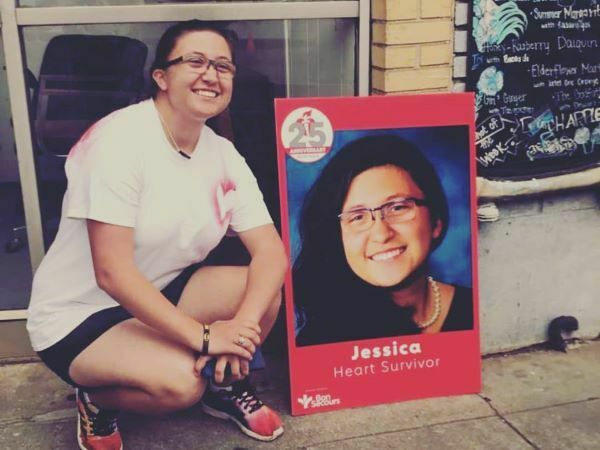
By Dudley Brown, Strategic Communications Manager
A childhood scar stands out when Jess Knox has a summer tan, and it’s common for people to ask what happened when they see it on her chest.
She doesn’t mind sharing her story of being born with congenital heart defects. Then, she often mentions the Upstate Heart Walk and how it raises money for research that saves lives.
“They’ve told me ways to get rid of my scar and how to let it fade, but I’ve never wanted to do that,” said Knox, a GIS analyst at Renewable Water Resources (ReWa). “It reminds me of how lucky I am and how amazing my doctors had to be to save my life and all of the prayers that I received.”
Knox is the co-chair of the ReWa Gives Back Committee, which promotes volunteerism among ReWa’s employees, including up to four hours a year that each employee can volunteer during normal work hours. She’s leading a team of the utility’s employees who will participate in the American Heart Association’s Upstate Heart Walk on April 21 at Fluor Field.
It’s a regular event for Knox. She grew up tagging along whenever her mom would participate with coworkers. As she got older, the walk became something to do with friends while celebrating that she’s a survivor of heart disease. In 2019, she and six best friends were recognized for having the event’s best t-shirts after hand-painting their shirts.
Knox was diagnosed with Respiratory Syncytial Virus (RSV) when she was 6 months old and that led her to spend six days in the hospital. While in the hospital, her family learned that she had an enlarged heart, and atrioventricular septal defects, which are holes between the atrial chambers and the ventricles of the heart. It also was determined that her heart valves weren’t fully formed and that she had a bicuspid aortic valve instead of a typical tricuspid aortic valve.
Open heart surgery was scheduled for a month later.
When she arrived for surgery, her valves had finished forming and there was no longer a hole between her atria. The surgery was still performed to repair the hole between her ventricles.
She’s from Belton, South Carolina, and knows that many in the small town included her and her family in their prayers.
Knox still lives with the bicuspid aortic valve; however, it hasn’t had a major impact on her life. She grew up competing in a variety of sports, including martial arts, basketball and competitive shooting.
“I never felt that it impacted me in any way,” she said. “I know it’s not the same for everyone. So, I consider myself lucky that I only tend to get winded quicker than other people.”
She stays on top of appointments with her cardiologist and can’t remember getting a concerning report.
Knox has plans to invite the American Heart Association to ReWa’s campuses to lead workshops and educational sessions.